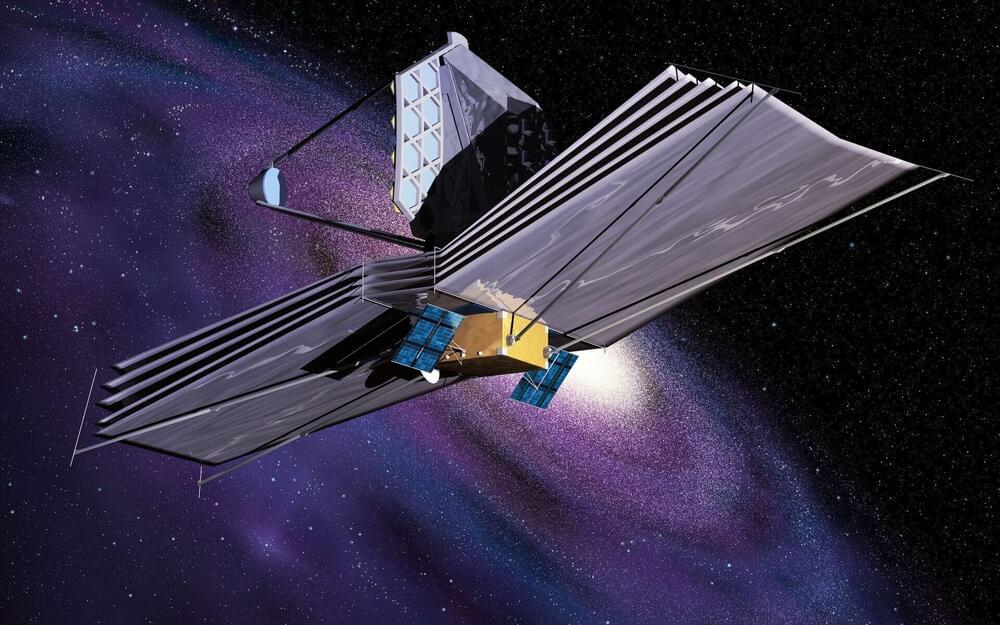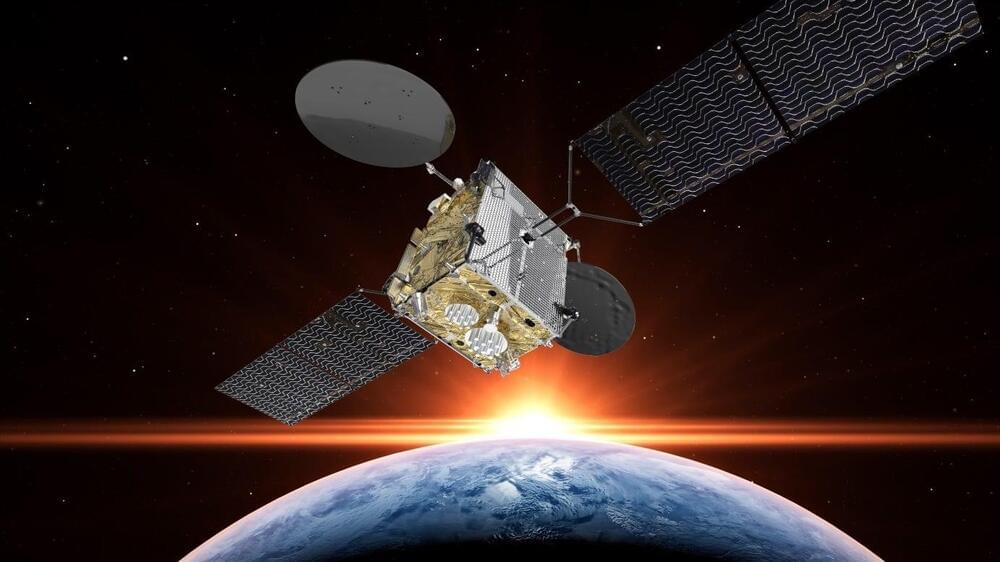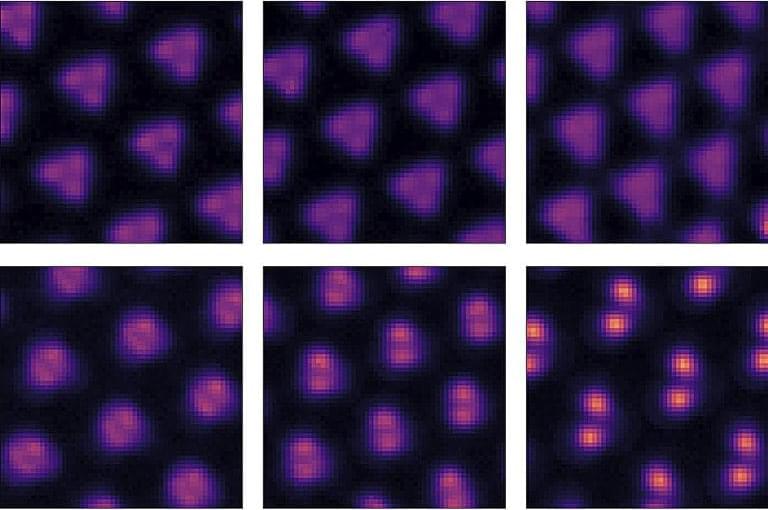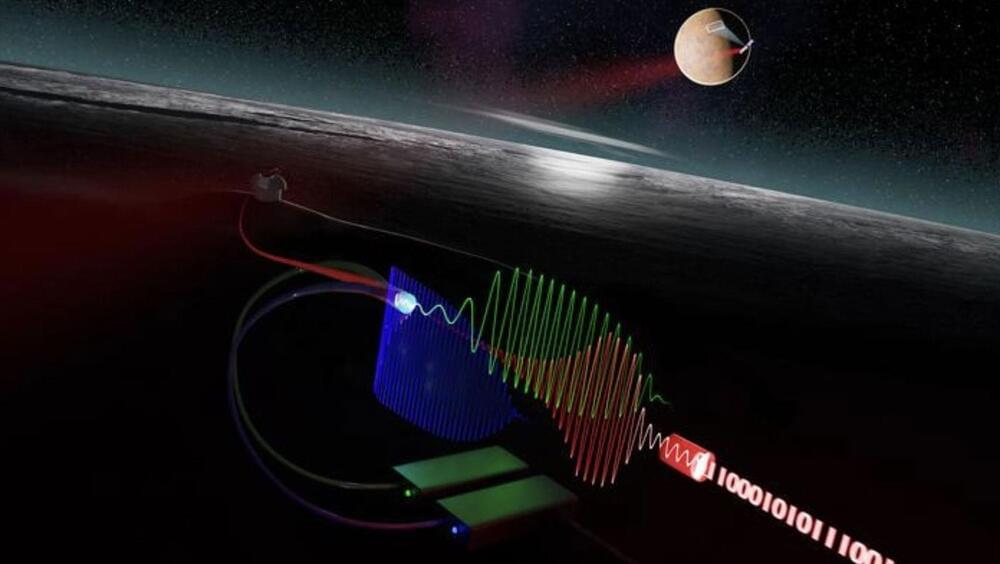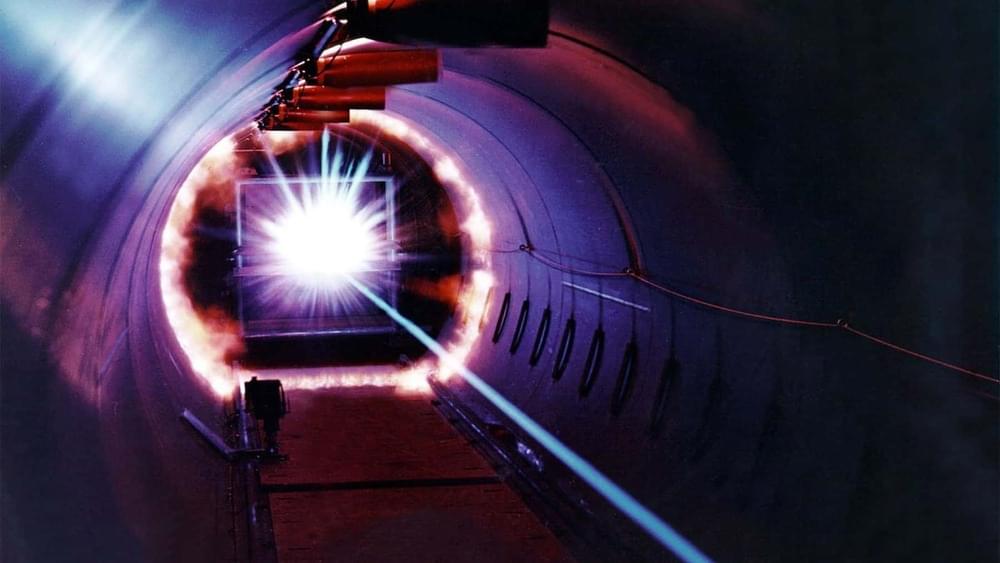Archive for the ‘space’ category: Page 20
Nov 8, 2024
Lab-made ‘supersolid’ could offer clues to neutron star mysteries
Posted by Genevieve Klien in category: space

Scientists have finally proven the existence of “supersolids,” a bizarre state of matter that behaves like both a liquid and a solid.
Nov 8, 2024
A space walking robot could build a giant telescope in space
Posted by Genevieve Klien in categories: robotics/AI, space
Requested URL must be a parsable and complete DynamicLink.
If you are the developer of this app, ensure that your Dynamic Links domain is correctly configured and that the path component of this URL is valid.
Nov 8, 2024
SpaceX aims for Sunday-Monday-Tuesday rocket launch tripleheader from Cape Canaveral
Posted by Genevieve Klien in category: space
(This story has been updated with the latest launch information.)
Three SpaceX Falcon 9 rocket launch windows are scheduled to open back-to-back-to-back on Sunday, Monday and Tuesday from Florida’s Space Coast, a Federal Aviation Administration operations plan advisory indicates.
SpaceX has yet to officially announce this trio of missions — which would become the unparalleled 77th, 78th and 79th orbital rocket launches during a single calendar year from Cape Canaveral Space Force Station and NASA’s Kennedy Space Center.
Nov 8, 2024
Asteroid-sample Return Mission Enables Researchers to Conduct Largest Geophysical Observation Campaign of its kind
Posted by Natalie Chan in category: space
 The OSIRIS-REx project made history last year as the first U.S. mission to bring back an asteroid sample from space—and with it came a treasure trove of data. An international collaboration, led by Sandia National Laboratories and including researchers at Los Alamos National Laboratory, has published a study in The Planetary Science Journal that reveals the preliminary findings from the capsule’s reentry.
The OSIRIS-REx project made history last year as the first U.S. mission to bring back an asteroid sample from space—and with it came a treasure trove of data. An international collaboration, led by Sandia National Laboratories and including researchers at Los Alamos National Laboratory, has published a study in The Planetary Science Journal that reveals the preliminary findings from the capsule’s reentry.
The return of the OSIRIS-REx capsule was the largest geophysical observation campaign of its kind. “This project was a unique opportunity for us to observe the geophysical signals produced by a meter-sized object traveling at hypersonic speeds,” said Chris Carr, the lead author at Los Alamos National Lab. “There are few chances for scientists to be prepared to collect this type of data that we need to propel scientific inquiry for years to come.”
The campaign involved over 400 sensors, many of which were stationed near Eureka, Nevada along the “loneliest road in America.” Given the size of the project, there were many objectives among the more than 80 collaborators. One team of Los Alamos scientists focused on distributed acoustic sensing (DAS), and the paper as a whole encompasses many methods to obtain data during the capsule’s return.
Nov 7, 2024
Gamma radiation converts methane into complex organic molecules and could explain the origin of life
Posted by Genevieve Klien in categories: materials, space
The composition of the products varies depending on the starting materials. Pure methane reacts—with very low yield—to give ethane, propane and hydrogen. The addition of oxygen increases the conversion, resulting mainly in CO2 as well as CO, ethylene, and water.
In the presence of water, aqueous methane reacts to give acetone and tertiary butyl alcohol; in the gas phase, it gives ethane and propane. When both water and oxygen are added, the reactions are strongly accelerated. In the aqueous phase, formaldehyde, acetic acid, and acetone are formed. If ammonia is also added, acetic acid forms glycine, an amino acid also found in space.
“Under gamma radiation, glycine can be made from methane, oxygen, water, and ammonia, molecules that are found in large amounts in space,” says Huang. The team developed a reaction scheme that explains the routes by which the individual products are formed. Oxygen (∙O2−) and ∙OH radicals play an important role in this. The rates of these radical reaction mechanisms are not temperature-dependent and could thus also take place in space.
Nov 7, 2024
Swedish Researchers Unveil Game-Changing Optical Communication Tech for Space
Posted by Genevieve Klien in categories: innovation, space
Swedish scientists report a new breakthrough in technology that could transform optical communication in deep space, according to recently published research.
In a study led by a team at Chalmers University of Technology in Sweden, researchers have developed a silent amplifier and ultra-sensitive receiver that can facilitate high-fidelity transmissions over vast distances, showing promise for long-distance space communication.
Optica l Communication Through Deep Space
Nov 7, 2024
The Milky Way Has Already Started The Process Of Colliding With The Andromeda Galaxy, An Event Previously Predicted To Be Four Billion Years Away
Posted by Genevieve Klien in category: space
“The circumgalactic medium plays a huge role in that cycling of that gas. So, being able to understand what the CGM looks like around galaxies of different types — ones that are star-forming, those that are no longer star-forming, and those that are transitioning between the two — we can observe [how] changes in this reservoir may actually be driving the changes in the galaxy itself.”
As technology evolves astronomers will likely be able to look at the CGM of other more distant galaxies and learn more about them as well.
The colliding of galaxies sounds terrifying.
Nov 7, 2024
NASA Jupiter images reveal gas giant in spectacular detail
Posted by Genevieve Klien in category: space
NASA’s Juno spacecraft has just completed its 66th flyby of Jupiter, and the latest batch of images it has sent back to Earth are truly spectacular.
The spacecraft was launched back in 2011, reaching Jupiter five years later in 2016 after journeying for 1.7 billion miles. Ever since then, the probe has been zipping past Jupiter and its moons, capturing images and sending back data bursting with exquisite details.
“Jupiter is the Rosetta Stone of our solar system. Juno is going there as our emissary—to interpret what Jupiter has to say,” Scott Bolton, Juno’s principal investigator, said in a statement on NASA’s website.
Nov 6, 2024
This laser exceeded the speed of light: It broke a law of the universe
Posted by Genevieve Klien in category: space
The laser violated a law of the universe by travelling faster than light. A relative theory by Einstein was not believing that this could be possible.

